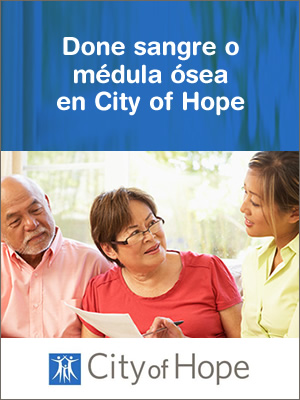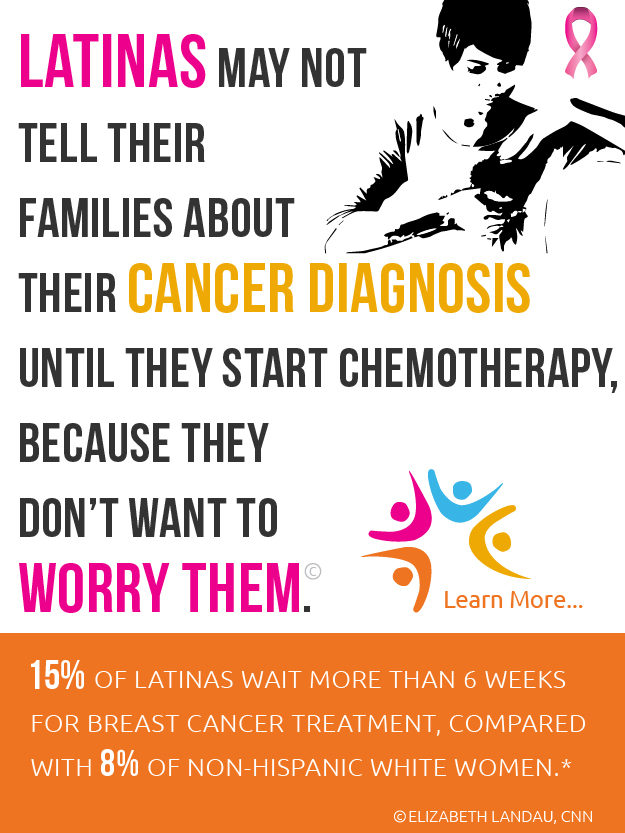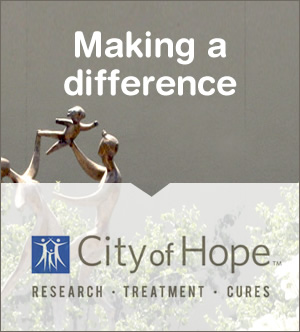
How to Find Culturally Competent Care for Your Physical and Mental Health Needs, According to Experts
08/26/2021 06:00AM | 3041 viewsWhere to begin your search for a medical professional who shares your background or understands your health challenges, so you get the treatment you deserve.
Getting yourself to the doctor for regular checkups and screenings can be difficult-remembering that you're due for a visit, taking the time off, and finding a medical pro you like and trust. But it's arguably even harder if you fall into a marginalized group, and you prefer seeing a provider who shares your background and understands your particular health concerns, as many people who are BIPOC, LGBTQ+, differently abled, larger sized, or don't speak English do.
Finding someone you're comfortable with who empathizes with your challenges is within your rights as a patient, and research suggests it might improve the quality and outcome of your care and treatment. A 2019 study in Plastic and Reconstructive Surgery-Global Open found that diversity in health care providers leads to increased patient comfort and satisfaction, as patients are often more likely to trust physicians and feel more empowered to ask questions if their physician shares a similar ethnic background.
Why a culturally competent approach is growing more popular
The term for this approach to health care is called culturally competent care, and it's becoming increasingly popular among patients used to a traditional, one-size-fits-all type of health. The American Hospital Association defines culturally competent care as the ability of systems to provide care to patients with their individual backgrounds in mind, such as their ethnic background and cultural beliefs.
Some providers prefer to use the terms "culturally responsive" or "culturally empathetic" over "culturally competent," because they believe these better demonstrate a provider's commitment to serving patients' unique needs. "It makes sense for health care providers to be culturally responsive and empathic to everyone, but that requires training," Melissa Simon, MD, MPH, director of the Institute for Public Health and Medicine-Center for Health Equity Transformation at Northwestern University's Feinberg School of Medicine, tells Health. "It requires being willing to deeply listen [and possessing] certain characteristics that aren't necessarily taught during a health care professions education."
While finding a provider who is culturally responsive can alleviate patients' concerns, it's still a tricky path to navigate because not every provider is trained in cultural competence, Dr. Simon says. Asim Shah, MD, a professor and executive vice chair of psychiatry and behavioral sciences at Baylor College of Medicine in Texas, agrees. Although training exists within the Texas Medical Center campus in Houston, one of the most diverse cities in the US, it's less common in more homogenous parts of the country, Dr. Shah tells Health.
"It's important and completely reasonable and understandable that a patient would want somebody to care for them [who is] empathic and embodies the ability to be able to be responsive to cultural differences, whether they're racial, ethnic, religious, whether they're gender-based or [part of] the whole gamut of potential diverse issues," says Dr. Simon. This patient/practitioner trust is "essential gasoline" that fuels a patient's health journey, she says, and helps a patient feel seen and heard.
The challenges in finding culturally responsive care
One factor that can make it difficult to find a physician who closely empathizes with your cultural needs is a lack of diversity in the medical field. According to 2018 data provided by the Association of American Medical Colleges, only 5% of US physicians are Black. Just 3.1% of practicing physicians have a disability, reported a Journal of the American Medical Association study updated in 2021.
"In terms of our health care workforce right now, it is not nearly as reflective of the population, especially with our evolving demography in the United States," says Dr. Simon.
While those facts might seem discouraging at first glance, finding a provider of color, for example, might not be that tough, especially if you live in a major metropolitan area with a large and diverse health care system, Dr. Shah advises. However, narrowing down a provider can be harder if you use Medicaid or if you're uninsured, as your options are likely to be much more limited, she says.
"Knowing your rights as a patient is important, but if you have public insurance or Medicaid or Medicare or a state public aid program, or are uninsured and have no insurance, it becomes really hard to be able to have that leverage or power of picking and choosing," Dr. Simon says.
This is important, especially for BIPOC patients, because minority groups are at an increased risk for certain conditions. People of color have higher rates of high blood pressure, diabetes, obesity, and heart disease than white people. Black individuals are also almost four times more likely, and Hispanic people 1.3 times more likely, to have kidney failure compared to white Americans. These conditions were also linked to higher rates of COVID-19-related hospitalizations in 2020, which didn't necessarily reflect better outcomes for these patients, as they were also more likely to die from the virus, according to the Centers for Disease Control (CDC). Having a provider who is mindful of such stark disparities can help to ensure preventative care and necessary screenings are performed to catch any serious health conditions early.
How to find a culturally responsive provider for your physical health
When it comes to primary care providers, patients have more options, says Dr. Simon, over finding a specialist. But whatever type of health care professional you're looking for, start with your insurance plan. Your provider's website might allow you to enter certain characteristics, like languages a doctor speaks, to filter your search results. Medical search engines like ZocDoc can also be helpful, because they usually display a photo with provider listings.
Other minority-focused organizations that might assist you include the National Medical Association, which represents African American physicians and their patients, as well as the Association of American Indian Physicians, the National Council of Asian Pacific Islander Physicians, and the National Hispanic Medical Association. GLMA: Health Professionals Advancing LGBTQ Equality offers an online health care provider directory as well.
Another way to search is via community health clinics. Facilities like Planned Parenthood cater to diverse populations, such as low-income patients or those who identify as LGBTQ+. Check their website or call a facility near you to see if they have medical professionals who are a cultural fit for you, or if they can point you in the direction to find them. FreeClinics.com is another resource for finding affordable options in your area. If you live in a major metropolitan center, odds are higher that these clinics have providers or staff members who speak Spanish and other languages.
How to find a culturally responsive provider for your mental health
Finding a mental health care provider that is sensitive to your cultural needs can be even more difficult than with a physical health care provider. "If you're publicly insured or uninsured, your choice in a mental health provider is very limited," Dr. Simon explains. "If there is a language other than English that you need to be able to speak with your mental health provider, it becomes even more [challenging] because in the mental health provider and behavioral health provider world, there are much fewer people who can speak an additional language besides English."
However, new digital mental health sites aimed at diverse communities are now available, such as Hurdle, which offers individualized therapy via your phone, tablet, or computer that offers a culturally responsive approach to mental health, with therapists who make sure your background and narrative are heard and acknowledged. Ayana Therapy is a digital company "for marginalized and intersectional communities" that matches users with a licensed therapist who conducts sessions by screen. The Trevor Project aims to reach LGBTQ+ people seeking mental health help for a variety for a variety of conditions, including suicide ideation.
Resources like Psychology Today's therapist directory can help you narrow your search for a therapist (IRL or one who can see you via phone or screen) by applying the characteristics you're looking for, such as ethnic background, language, or sexuality. Dr. Shah also recommends Mental Health America as another informational resource, as well as BetterHelp and Talkspace, two apps that provide online therapy sessions with licensed mental health professionals.
What to know when you do find a provider
Dr. Simon emphasized that you have full rights as a patient when you go to a clinic visit, and if you don't feel comfortable there, you can go someplace else-whether that means asking for another provider or going to a different clinic altogether.
"I know that the reality on the ground is that it is much easier said than done, especially if you are publicly insured or have insurance that has very limited provider options in your area, but when a friend or family member has been treated well by a provider, they tend to refer them," says Dr. Simon. "This can be especially key for populations such as larger-size patients, in addition to other minority groups."
Don't forget to stay attuned to how you're feeling when you visit a clinic yourself, making sure you're being treated well and feel listened to. If you have a condition that isn't immediately apparent, bring it up early on and don't let a rushed physician overlook it, Dr. Shah suggests.
"Regardless of your ability status, all patients should feel respected and heard in a clinical care visit," Dr. Simon adds. "You should disclose your disability to your health care team so that they can best accommodate your needs and tailor their visit approach and care plan to your needs.
"All clinics are expected to be ADA-compliant for differently-abled individuals, but that's something to be mindful of as well, by making sure that clinic really does know how to care for you as a patient, that they have the specialists needed and a patient room for whatever your ability or disability is," Simon says.
Finding a culturally empathetic medical professional can put you at ease and give you the time to suss out whether your provider is someone who you personally mesh with as well. By knowing what questions to ask and what resources can be of good assistance, you can make the search a bit easier on yourself.











Post your Comment
Please login or sign up to comment
Comments